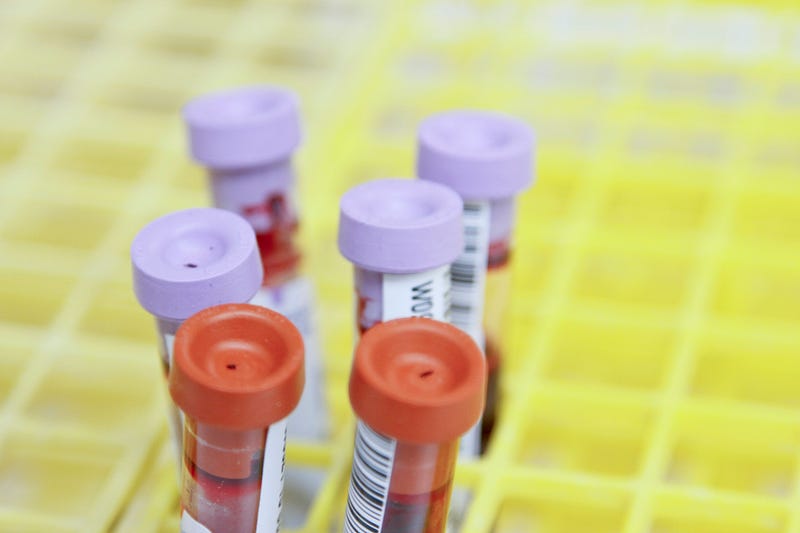A Revolutionary Blood Test for Predicting Heart Attack Risk
Written on
Understanding the New Blood Test for Heart Attack Prediction
Researchers are investigating the ability of blood tests to forecast the likelihood of experiencing a heart attack for the first time. Having lost my father to a heart attack at the age of 86, I am understandably concerned about my own heart health.
A recent study identified approximately 90 molecules that could serve as early warning signs for potential cardiac events. One significant marker is brain natriuretic peptide, which functions as a natural diuretic. When the heart faces stress, it may release this peptide to help decrease blood volume by promoting urination.
Heart attacks are alarmingly prevalent.
My father's experience is not unique; coronary heart disease (CHD) is the most common type of heart disease, leading to around 375,476 fatalities each year.

In the U.S., roughly 805,000 individuals suffer a heart attack every year. Out of this number, 605,000 are experiencing their first heart attack, while 200,000 are recurrent cases. This translates to one death every 3 minutes and 33 seconds—an alarming statistic.

It's startling to realize that one in five deaths in the United States is attributed to heart disease, with approximately 405 fatalities from stroke each day. Unfortunately, heart attacks frequently occur without any warning signs.
A New Study's Insights
I'm excited to share that recent research holds promise for predicting heart attack risk over the next six months. A study conducted at Uppsala University in Sweden has identified blood biomarkers that could act as an early warning system for heart attacks.

This potential "early warning" system could provide critical time for preventive actions prior to a first heart attack. The researchers analyzed blood samples from European individuals who had no prior history of heart issues, comparing samples from 420 individuals who experienced their first heart attack within six months against those from 1,598 healthy individuals.
The investigation, published in Nature Cardiovascular Research, revealed 91 molecules that may indicate an approaching heart attack. Dr. Johan Sundström remarked that these molecules could either be causal factors or mere bystanders, necessitating further examination.

Interestingly, the new tool developed does not rely on the newly identified molecules but instead uses existing markers that are already effective and widely available in healthcare settings.
Key Findings
Among the 91 molecules studied, brain natriuretic peptide was the most consistently associated with an impending heart attack. This molecule is released by heart muscles under stress, acting as a natural means to alleviate fluid overload by boosting urine production.
Scientists are also in the process of creating an online tool that allows individuals to input their current LDL and HDL cholesterol levels, waist circumference, height, and other essential information to estimate their risk of experiencing a first heart attack within the next six months.
My Perspective
Currently, there isn't a method available to assess the "imminent" risk of a heart attack—specifically within a six-month timeframe—which this study aims to establish. Such a test could assist in identifying patients who might benefit from more targeted assessments to determine necessary interventions.

This research provides initial insights, but it raises questions about when screening for potential heart attacks should begin. Can we compare our risk with that of an average individual of the same age and gender, making this tool more accessible to the public?
While the tool does not account for Lp(a) levels—a genetic factor associated with heart disease—clinical trials are underway to develop treatments for high Lp(a) levels.
The first video discusses the groundbreaking blood test that could help predict heart attack risks, offering insights from The Proof Podcast, episode #315.
Practical Steps for Reducing Heart Attack Risk
Despite the promising research, it's essential to focus on personal health measures to mitigate the risk of heart attacks and strokes. Here are some strategies endorsed by the U.S. Centers for Disease Control (CDC):
- Opt for Healthy Foods and Beverages: Consuming a diet high in saturated and trans fats increases heart disease risk. I strive to include foods rich in fiber while keeping saturated fats, trans fats, and cholesterol low to maintain healthy cholesterol levels.

Additionally, managing sodium intake by reducing salt consumption helps keep blood pressure low, and moderating sugar intake aids in regulating blood sugar levels.
- Maintain a Healthy Weight: Excess weight contributes to heart disease risk. Carrying additional weight places extra strain on the heart and blood vessels. You can calculate your Body Mass Index (BMI) using the CDC’s Assessing Your Weight website, although BMI is not a perfect measure of optimal weight.
- Stay Active: Engaging in regular physical activity is vital for weight management and can lower blood pressure, cholesterol, and blood sugar levels.

I aim for at least 2 hours and 30 minutes of moderate exercise each week, such as brisk walking or cycling, to enhance overall health.
- Avoid Smoking: Smoking is detrimental to heart health.
- Monitor Health Metrics: Regularly checking blood pressure and blood sugar levels is crucial. I make it a point to visit my doctor periodically to stay informed about my health.
The second video highlights how a blood test could play a role in predicting heart disease risk, providing valuable information for viewers.
In conclusion, while we have a long way to go in terms of heart attack prediction, this research signifies a crucial step forward. I encourage everyone to consider their heart health actively. What measures do you take to reduce your risk of heart attack?